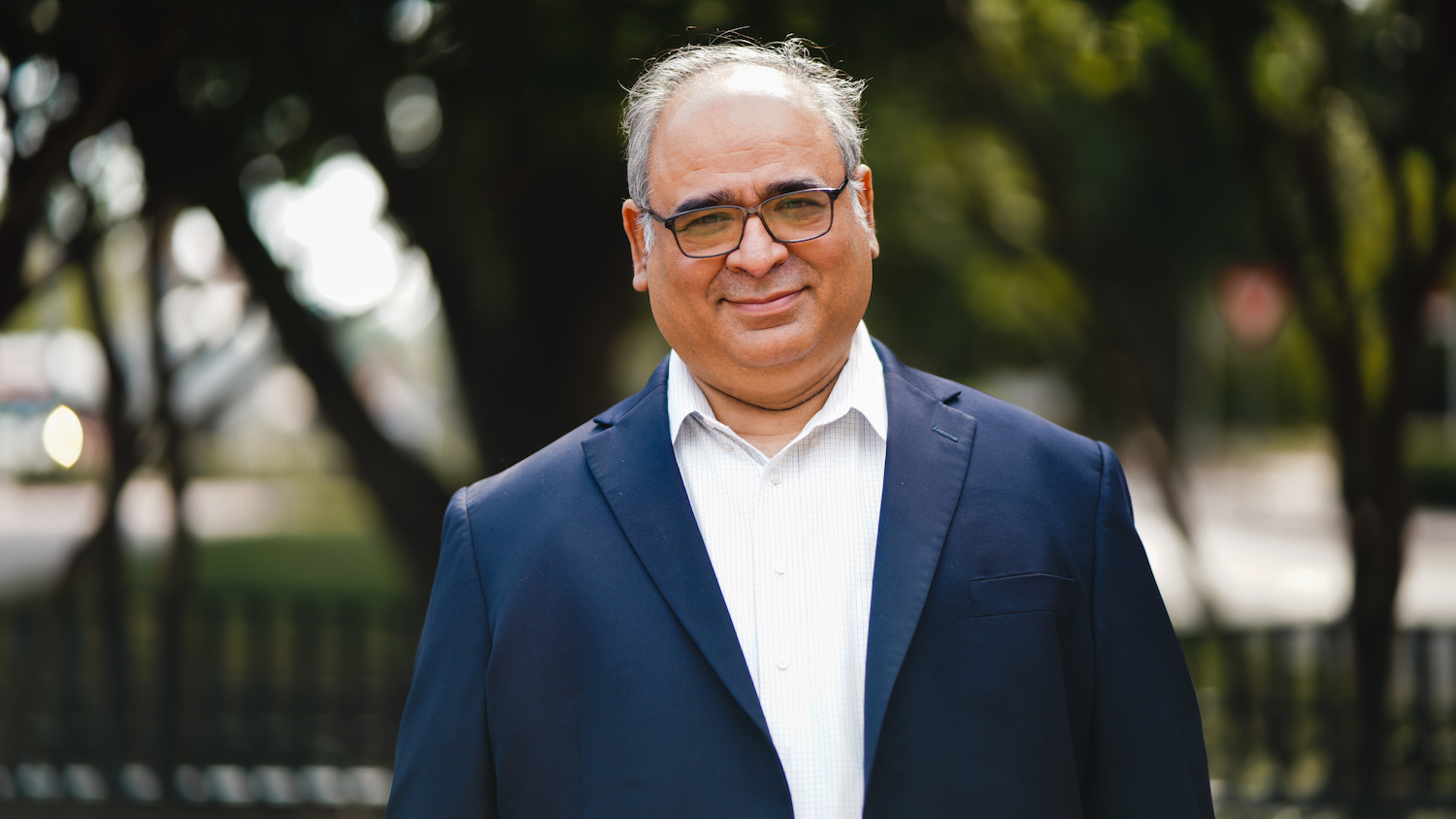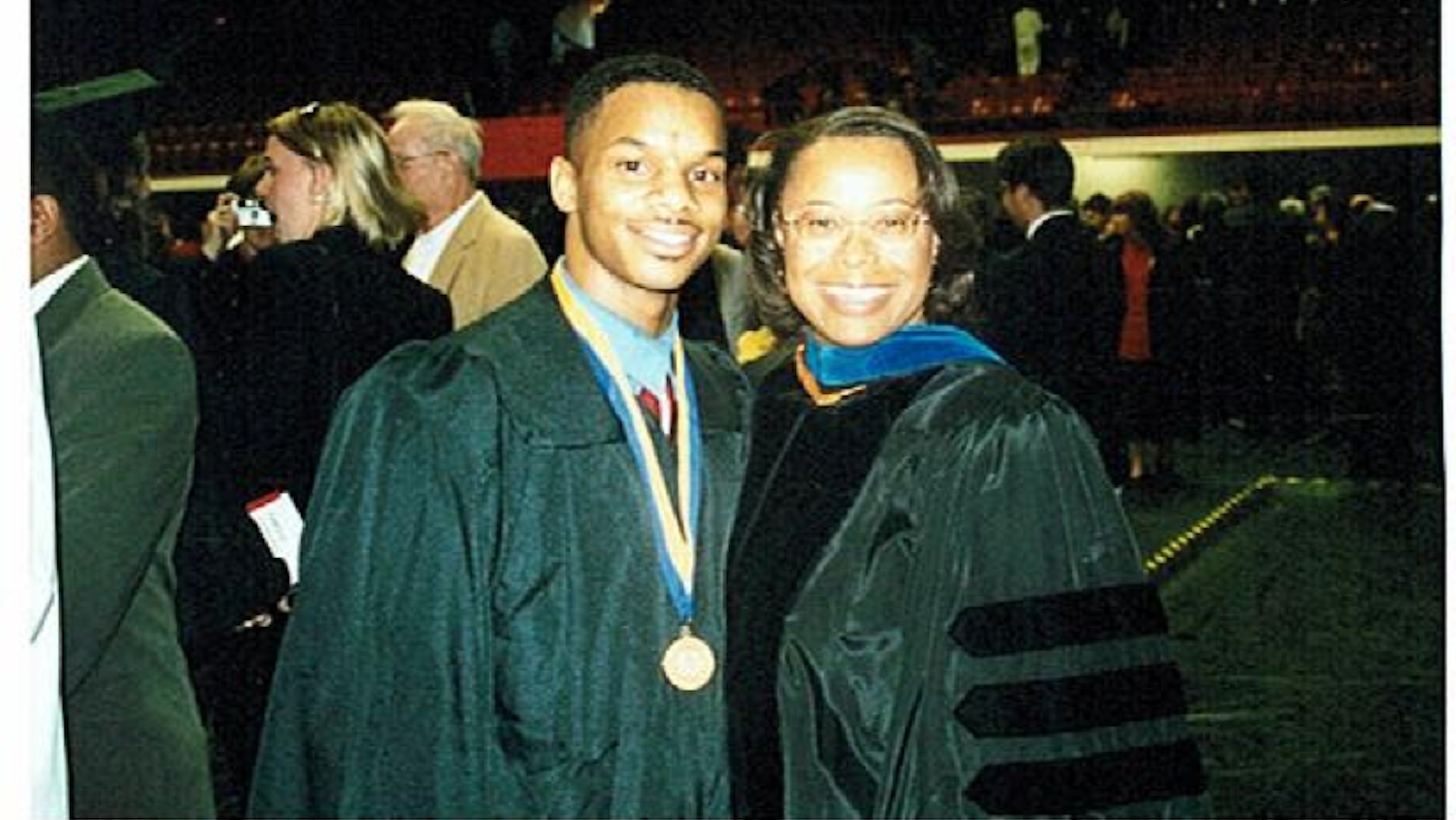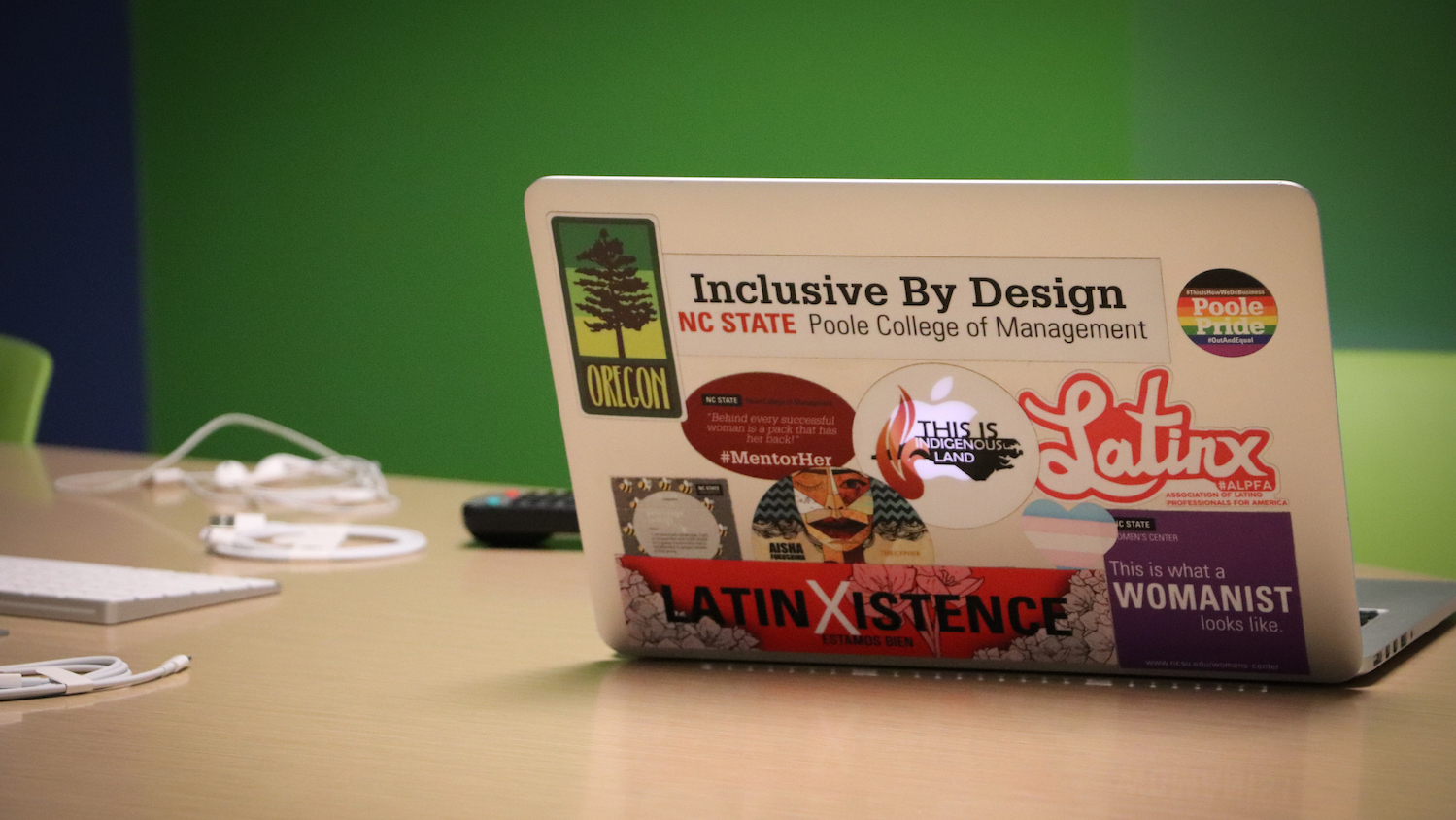An Education in Business
Associate Dean Anand reflects on business trends, lifelong learning and adapting to an ever-changing industry.

When Poole College of Management welcomed Vikas Anand, associate dean for academic programs, in March 2021, the university — and the world — were entering unprecedented times. The COVID-19 pandemic, fervent calls for racial equity and social justice, and extraordinary advances in technology were forcing us to traverse an entirely new path.
At Poole College, the next generation of business leaders and entrepreneurs are taking valuable lessons today that will change the way we teach, work and conduct business for many years to come.
Anand shares his insights for what we can expect as business education evolves to meet these new challenges, and how Poole College has uniquely positioned itself to meet the needs of students today and in the future.
What is the value of a business school education?
VA: A good business school education should focus on building networks for students and instilling in them a quest for continuous, lifelong learning. The traditional argument that business schools are ‘bundlers of knowledge’ still remains valid. For instance, students can draw on their knowledge of psychology to manage an organization and motivate individuals, and then pivot to using their analytical skills from statistics courses for decision-making. But the mission of business schools is even more relevant today — we strive to balance Milton Friedman’s arguments for focusing on wealth maximization with the development of values, social responsibility and an inclusive environment.
But the mission of business schools is even more relevant today — we strive to balance Milton Friedman’s arguments for focusing on wealth maximization with the development of values, social responsibility and an inclusive environment.
How has the pandemic changed higher education, both undergraduate and graduate?
VA: The COVID-19 pandemic has accelerated many forces that were already in motion, including ensuring that we promote a relevant curriculum and understanding the best ways of imparting knowledge to our students. The pandemic has forced a gigantic embrace of technology, as well as serious introspection about what curriculum is best provided in classrooms versus through technology. Above all, it has created a more discerning student who weighs the value of education significantly.
What trends do you see in business education in the next ten years?
VA: Change is going to be driven by several forces — first and foremost, by the constant evolution of technology. Advancements in technology are leading to the development of new ways of teaching, while at the same time transforming the way businesses are structured, employees work and capital is raised. That in turn means the curriculum we teach will also need to change to keep pace. For instance, more students than ever before are likely to be ‘free agents,’ as opposed to corporate employees. What does that mean for how we teach HR and career management? How do advances in automation and machine learning change the skills that students will need to develop? How will we define “value” in these changed environments? These questions will drive important changes in what we currently think of as a comprehensive business education.
Additionally, we know that Gen Z has different expectations of firms and of their careers. From my perspective, this will demand a better balance between distance and in-person education, more experiential learning, a greater need for on-demand information and, without question, greater emphasis on solutions that address sustainability, inclusivity and the like.
Which programs will survive and which will not?
VA: I expect that the programs and disciplines that continue to evolve will thrive, while the ones that don’t will be in peril of obsolescence. Take, for example, a degree like the MBA. The demand continues to be strong from employers and potential applicants, but the nature of the skills provided will have to change over time. Corporate and student needs will also dictate changes in the mechanisms through which such programs are offered.
What are the options for working professionals to maintain and/or gain marketable skills?
VA: There are numerous online and hybrid – mix of online and in-person – options widely available. That said, it’s important to keep the three key objectives of business education in mind — providing information, perspective and critical thinking skills, and networking opportunities — as not all are easily achievable online. The working professional will need to evaluate what they are hoping to gain from additional education and make choices on that basis.
How would you define lifelong education and how does it look now?
VA: Lifelong learning is achieved through individual efforts to learn on a continuous basis through formal and informal means. Although lifelong learning is self-initiated, curricula from institutions like NC State should also play a role in helping students develop the curiosity that motivates them to continuously learn and upgrade key skills beyond the walls of the university. In addition, colleges like Poole can focus on supporting others in the communities where we operate with these learning opportunities as well. Accelerating learning for all individuals can lead to positive and beneficial ways of thinking and action, and we expect that our executive education unit will be a key player in this operation.
What should working professionals keep in mind when deciding on continuing education?
VA: While there are many factors that play into this important decision, the first is the nature of the learning. Is the individual trying to acquire information that can be easily achieved through a quick online study? Or do they seek more complex learning, which requires interpretation of complex data and sometimes ambiguous or conflicting information, as well as the anticipation of the reaction of other people? Depending on the complexity of the information they are trying to acquire, an environment where there’s an opportunity to interact with others is important.
I would point out that the most successful do not procrastinate on their learning.
A second factor to consider is the depth versus breadth issue. A depth perspective often leads to the path of specialization and becoming an expert in specific fields or issues. A breadth of knowledge perspective leads to developing leadership skills, holistic thinking and the like. At different stages of their careers, individuals may need to take a different perspective.
Then, of course, there is the time and cost factor. An individual at a demanding job with a family to take care of may prefer simpler options.
At the end of the day, in my work with former students and executives, I would point out that the most successful do not procrastinate on their learning. They are looking for opportunities to learn and develop, and are usually found reading (or listening) in today’s world.
How has Poole positioned itself well to serve not only traditional students but also industry professionals looking to gain additional education and skills?
VA: It begins with building relationships with current students and committing ourselves to their lifelong learning. Our faculty work tirelessly to develop students, track their progress and provide them with opportunities for exposure to key developments in their field. But this is just the start. We are in discussions now to develop an even more robust model for the lifelong learning of graduates.
Another way is our commitment to executive education. Last month, Poole College was proud to host a session about our Women in Technology Leadership Program, which focused on the unique challenges that women in technology roles face in rising within their organizations. We also provide training in analytics and leadership to employees in a slate of organizations. And we expect our efforts in this area to continue to grow.
- Categories:





